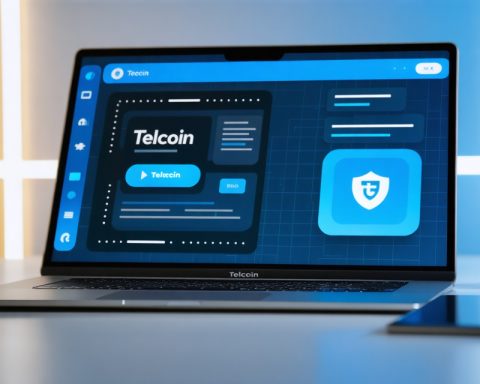Google Cloud is making waves in the tech landscape with the introduction of its Blockchain Remote Procedure Call (RPC) service. This new offering is designed specifically to enhance blockchain interaction, making it more accessible for developers of all levels, from startups to established enterprises.
The service presents a scalable and cost-efficient method for developers to interact seamlessly with blockchain data. A striking feature is the ability to handle up to 100 requests per second, which supports the creation of real-time and data-heavy applications. The introduction of a free tier allows users to experiment and integrate this technology without upfront costs.
Importantly, the Blockchain RPC service currently supports Ethereum mainnets and testnets, ensuring compatibility with the well-established Ethereum JSON-RPC standard. This means developers can swiftly incorporate the service into their existing applications with minimal alterations to their code.
Google Cloud is clearly committed to enhancing its blockchain capabilities, having previously launched tools allowing users to view wallet balances directly through search, alongside updated advertising policies tailored for the cryptocurrency sector. Additionally, the company’s newly established Digital Assets Team and the Blockchain Node Engine aim to simplify the deployment of blockchain applications, showcasing Google Cloud’s dedication to fostering innovation in the blockchain realm. This latest service marks a significant step forward in Google’s ongoing evolution within the decentralized technology space.
Google Cloud Unveils Innovative Blockchain RPC Service for Developers
In a groundbreaking move, Google Cloud has launched its Blockchain Remote Procedure Call (RPC) service, aiming to transform the way developers interact with blockchain technology. This service is not only designed for seasoned developers but also aims to make blockchain more approachable for newcomers, thereby democratizing access to blockchain capabilities.
Key Features of the Blockchain RPC Service
The new service stands out for several reasons. Aside from its ability to process up to 100 requests per second, Google Cloud’s Blockchain RPC service is built with robust security protocols, ensuring that user interactions are secure and reliable. Furthermore, the service is designed to offer low-latency connections to various blockchain networks, which is crucial for applications requiring quick computations and data retrieval. Developers can benefit from comprehensive documentation and community support, making it easier to troubleshoot and optimize their applications.
Important Questions and Answers
1. What blockchain networks are currently supported by the Blockchain RPC service?
While the service supports Ethereum mainnets and testnets, Google Cloud has indicated that it plans to expand support to other blockchain networks, including layer-2 solutions and potentially proprietary blockchains in response to user demand.
2. How does the service ensure security?
Google Cloud implements multi-layered security measures, including API keys, OAuth for user authentication, and secure data encryption, ensuring that users have a secure framework when working with sensitive blockchain transactions.
3. What are the costs associated with using the service?
The Blockchain RPC service features a tiered pricing model, including a generous free tier that allows developers to explore the platform without an initial investment. As projects scale, there’s an ability to switch to a paid tier which provides enhanced capabilities and resources.
Challenges and Controversies
Despite its advantages, the new service comes with challenges. One of the significant issues is the potential centralization of blockchain control. While Google Cloud aims to enhance accessibility, critics argue that reliance on a cloud provider for blockchain applications could undermine the decentralized ethos that underpins the technology. There are also concerns about vendor lock-in, where developers may find it challenging to migrate their applications away from Google Cloud once they are entrenched in its ecosystem.
Additionally, regulatory scrutiny around blockchain and cryptocurrency continues to grow. The intersection of cloud services with blockchain might attract increased oversight from authorities, potentially complicating compliance for developers working on projects in regulated industries.
Advantages and Disadvantages
Advantages:
– Scalability: The service can handle numerous requests simultaneously, facilitating real-time application development.
– Ease of Use: Compatibility with Ethereum JSON-RPC allows for seamless integration into existing projects.
– Free Tier: Encourages experimentation without financial commitments, making blockchain development accessible.
Disadvantages:
– Centralization Risk: Possible conflicts with the decentralized nature of blockchain technology.
– Vendor Lock-in: Developers may face challenges in migrating to other platforms.
– Regulatory Challenges: Increasing regulations could impact project development timelines.
In conclusion, Google Cloud’s Blockchain RPC service represents a significant advancement in the integration of blockchain technology into mainstream development practices. While it opens up new opportunities for developers, careful consideration of the associated challenges is essential to navigate this evolving landscape effectively.
For further information, visit Google Cloud.
















